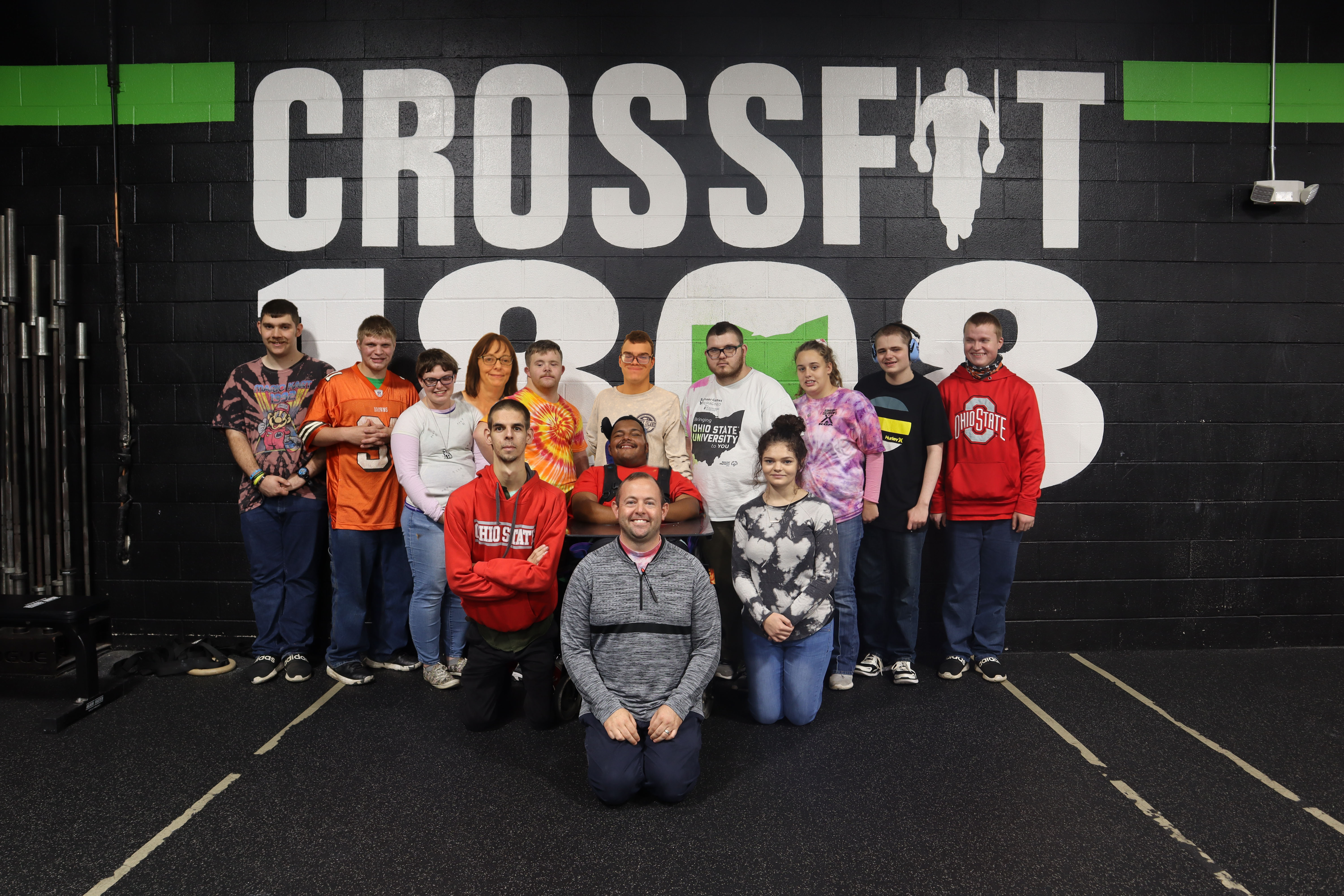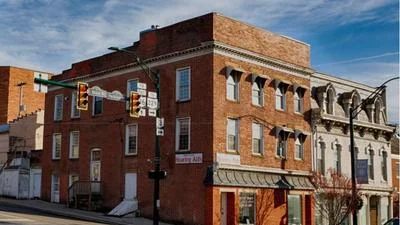MOUNT VERNON – Each weekday morning, a dozen students ages 17 to 22 gather in a lower-level classroom at the Knox Learning Center.
Their goal is simple yet complex: learning hands-on job skills and independent living.
The group, which reflects a wide range of special needs and learning disabilities, is enrolled in Transition U, a program designed to teach exactly what the students seek.
“Our focus is on giving these young people the skills needed to pursue productive and rewarding lives,” said Chris Kirkhope, Transition U director.
Working at several local businesses supplements classroom instruction.
“We are so blessed and thankful to have this program,” said Robert Coscia, whose son is in his third year at Transition U. “My son is learning different skills that wouldn’t have been possible otherwise. Chris has a heart like no other. What he has done has given hope to these young people.”
Kirkhope holds a BA degree in business administration and a master’s in education, both from Mount Vernon Nazarene University. He developed Transition U from the ground up, vastly expanding a previous program, after joining Knox Learning Center in 2016.
Kirkhope’s students already have earned enough credits for high school graduation, but the awarding of their diplomas has been deferred until the students, their parents and Kirkhope agree that necessary life skills have been achieved or they have found gainful employment. No one can remain at Transition U past the semester during which they turn 22. The cost of each student’s participation is paid by their home school district.
The focus each morning is on learning how to live independently.
“We cook breakfast in our classroom and practice basic hygiene, like brushing our teeth,” Kirkhope said. “We watch the morning news and talk about events. We practice filling out employment applications.”
Students then pack their lunches and travel by Knox Area Transit buses to work voluntarily at area businesses from 10 a.m. to 1:15 p.m. before returning to their classroom. Working in the community teaches responsibility and helps to develop social skills.
Each Thursday, the Transition U group travels to Fredericktown Chevrolet, where they clean and detail pre-owned vehicles.
“I had followed Chris’s program on social media and wanted to be part of it,” said Joe Walsh, manager of the GM dealership. “It’s important for these young people to be out of the classroom for experiences like this. It’s incredible what these students do.”
On Fridays, the students head to Crossfit 1808 to clean the fitness business.
“It’s a win-win situation,” said Nick Fiorilli, who co-owns the northside facility with his wife, Katie, and his brother Vince.
“The students learn job duties and responsibilities and they help us with cleaning. Each student has a specific duty, but they work as a group, too. We socialize with them and occasionally the kids use the machines for a light workout. As long as Chris will bring them, the students will be welcome here.”
Other participating employers include Baker’s IGA, Amato’s Pizza, Rural King, Mount Vernon’s movie theater, Stein Brewing Company, Harbor Freight and Habitat for Humanity’s ReStore. Several other businesses have participated in previous years.
Transition U differs from other such programs around the state because students travel and work at 10 different work locations each week. Other programs may work only with one or two businesses during the year.
“I feel this is the best way to help our individuals figure out where they want to work after graduating from Transition U,” Kirkhope said. “Ten different jobs each week throughout the year gives our individuals the chance to try out so many different jobs. If a person can work only at one or two jobs for the entire year and they don’t like it, that isn’t a positive experience for that person or their family. I want to expose them to as many different jobs as I can.”
At some locations Transition U students wear company apparel as they work alongside regular employees. At Baker’s IGA, for example, they wear the same distinctive red hats and aprons as they unload trucks and stock shelves.
“The owners had this set up before I got here two years ago,” said Baker’s IGA manager Mark Tracey. “We couldn’t do it last year because of the pandemic. I believe in the program. The students do a good job while they are here.”
At Stein Brewing Company in downtown Mount Vernon, the Transition U group buses tables and helps to seat guests for lunch. Near the end of each school year, Stein owner and president David Stein hosts a graduation party for the families of students who are leaving the program.
Back at Knox Learning Center, students punch out at the end of each day, using a four-digit passcode or thumbprint to record their work hours on a biometric time clock created by Kirkhope. The system logs their hours and creates individual bank-like accounts while simulating taxes and direct deposit.
Students are paid in “classroom money” that can be used to purchase movie tickets, clothes and other items in the school store. Funds for the store are generated in part by a document-shredding operation the students run for local business clients.
Bobbi Kirch, employment manager at the Knox County Board of Developmental Disabilities, is among Kirkhope’s most enthusiastic supporters.
“I love it. Transition U gives students experience and helps to prepare them for employment,” Kirch said. “Chris is teaching life skills. He is constantly working to create more opportunities for his students in the community.”
Knox County Board of DD and the state’s Opportunities for Ohioans with Disabilities step in to help the students obtain summer employment.
Kirkhope is assisted by classroom aide Diane Wenziner and three aides who provide one-to-one student assistance: Meghan Curry, Makenzie Lodahl and Kyle Kincaid, a Transition U graduate.
Every student who has left Transition U since 2016 is working somewhere, at least in a fully paid part-time role.
“Our program is a starting point for learning to live independently and earn a living,” Kirkhope said. “The cleaning, stocking, dish washing and other work the students do simply introduces them to a work environment. It gives them the opportunity to move on to bigger and better things.”
Knox Learning Center, sponsored by the Knox Educational Service Center, occupies Mount Vernon’s former West Elementary School. It serves special needs students in kindergarten through high school.







